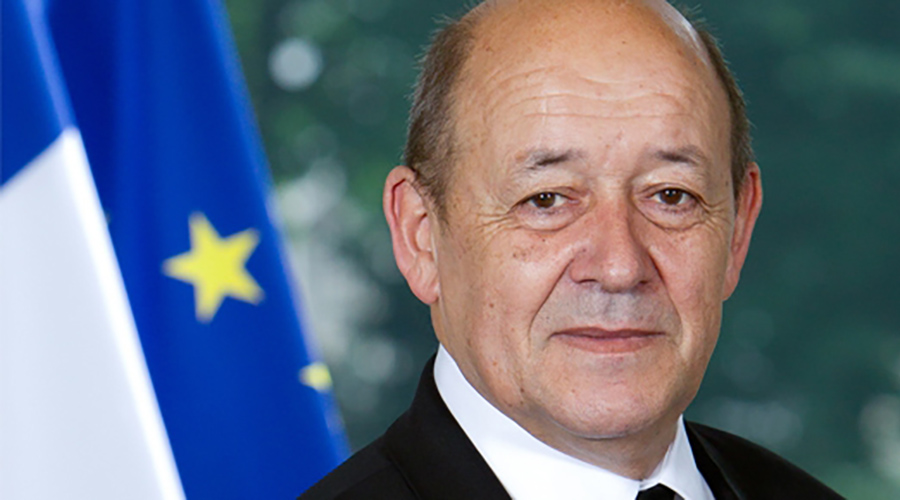BRUSSELS, (Reuters) – France invoked the European Union’s mutual assistance clause for the first time today, asking its partners for military help and other aid in missions in the Middle East and Africa after the Paris attacks.
The unexpected move to look to the European Union for help, rather than the U.S.-led NATO alliance, requires all of the bloc’s 28 members to provide “aid and assistance”, which Defence Minister Jean-Yves Le Drian said meant taking some of the burden off France as Europe’s most active military power.
“France cannot do everything, in the Sahel, in the Central African Republic, in the Levant and then secure its national territory,” Le Drian told a news conference during a meeting of EU defence ministers in Brussels where he invoked the EU’s Article 42.7 mutual assistance clause.
More details will be discussed between France and individual EU governments, said EU foreign policy chief Federica Mogherini.

The clause is not strictly the same as NATO’s mutual defence clause that considers an attack against one ally as an attack against all, but the article can be invoked the case of “armed aggression” on any EU country.
“ACT OF WAR”
President Francois Hollande has described Friday’s attacks that killed 129 people as “an act of war”, which could have been a trigger for NATO action, but France appears to be looking for a bigger European response that could possibly bring Britain into air strike operations against Islamic State in Syria.
The U.S.-led air war, in which France has intensified its involvement, has lasted more than a year but failed to contain Islamic State. The United States is also looking to EU allies to step up their participation in the war in Iraq and Syria.
London has not struck at Islamic State in Syria and although British Prime Minister David Cameron is said to be eager to take that step, he faces resistance from British lawmakers.
Germany, which is about to take over an EU training mission in Mali, was the first to publicly offer its support to France. “We will do everything in our power to give France help and support”, German Defence Minister Ursula von der Leyen said.
“France is right to point out that the fight against the so called Islamic State and the terror is not restricted to Syria and Iraq, but also important for Western Africa,” she said.
It remains far from clear whether the Paris attacks could galvanise European governments to work more closely on defence, given divisions on a broad common defence policy and Britain’s strong commitment to NATO.
Despite falling defence budgets, EU governments have only limited cooperation between their armed forces. EU “Battlegroups” of rapidly deployable forces, operational since 2007, have yet to be used.
Only 22 of the EU’s 28 countries are members of NATO.
